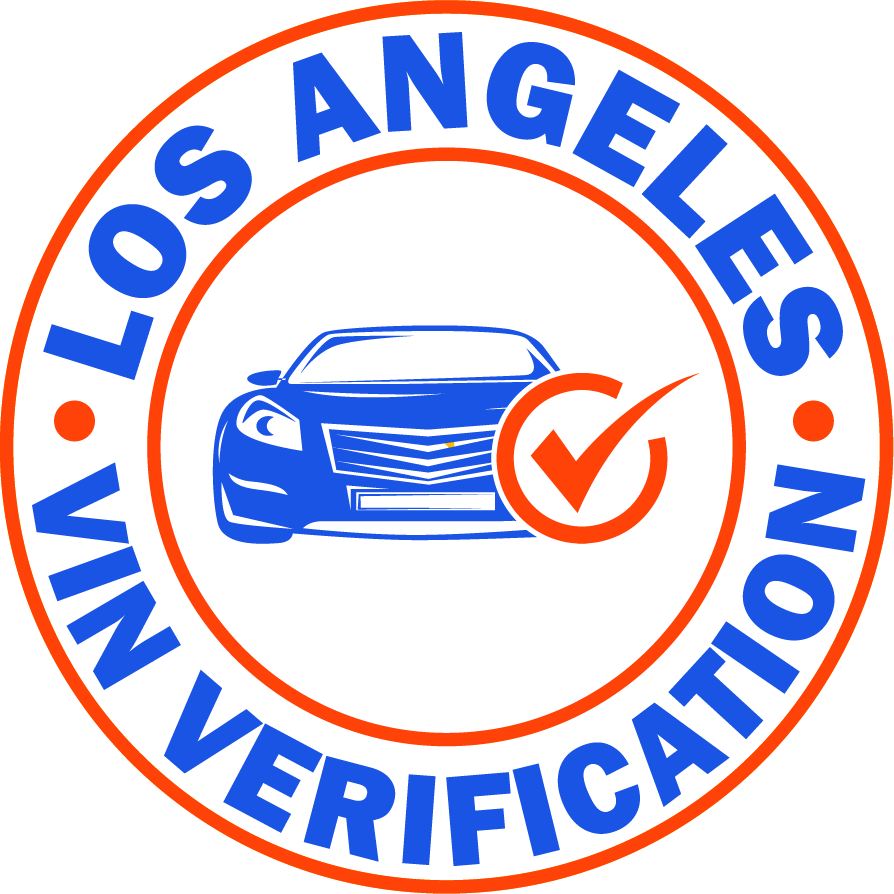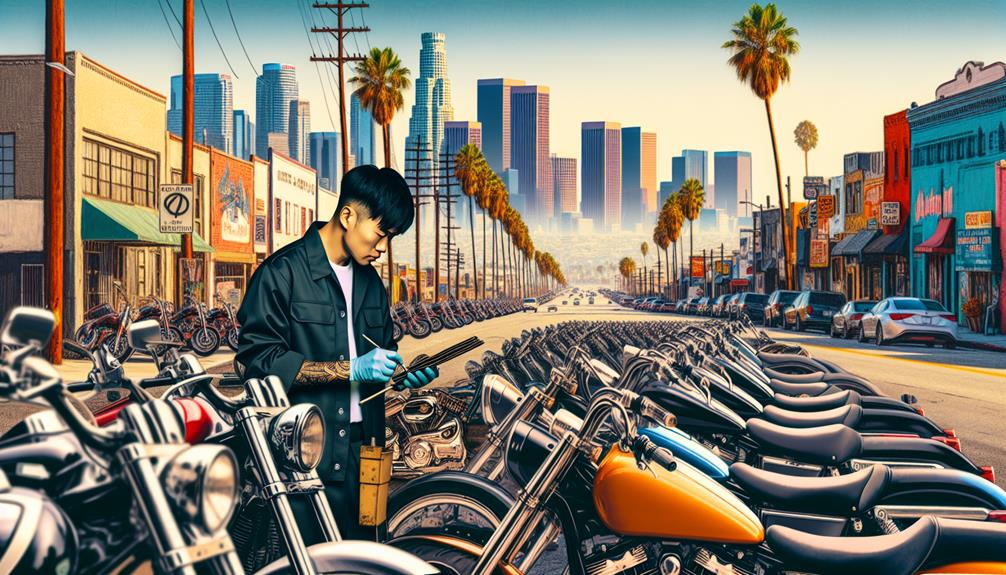In Los Angeles, VIN verification for motorcycles serves as a fundamental safeguard against fraud and theft, ensuring that the vehicle's recorded details correspond accurately with its physical specifications. This procedure not only assists in the proper registration of motorcycles but also plays a pivotal role in maintaining the legitimacy of vehicle transactions. Whether conducted through the DMV, CHP, or private verifiers, each approach has its nuances, often leading to varied experiences for motorcycle owners. Understanding these differences is critical, especially when considering how they impact the ease and security of the verification process. What then are the implications for motorcycle owners who may face complications during this essential procedure?
Importance of VIN Verification
VIN verification plays a critical role in ensuring that a motorcycle's identification number accurately matches its title and registration documents, thereby safeguarding against fraud and theft. This process is not merely procedural but a fundamental step in preserving the freedom of motorcycle owners to ride without legal impediments.
VIN verification allows for an authoritative confirmation that the motorcycle being registered is the same one detailed in ownership documents. This is particularly vital for those who cherish the liberty of the open road, as it directly affects their ability to legally operate their cherished rides.
Authorized verifiers, appointed by the Department of Motor Vehicles (DMV) or the California Highway Patrol (CHP), are tasked with this responsibility. They meticulously inspect the motorcycle and ensure that all details align with existing records.
The outcome of this inspection is documented on the REG 31 form, a crucial document without which the registration process cannot proceed. By adhering to this process, motorcycle enthusiasts can avoid future complications that might restrict their riding experiences.
Thus, VIN verification not only protects the motorcycle owner's investment but also reinforces the integrity of the motorcycle registration system, ensuring that each ride is both exhilarating and lawful.
Required Documents for Verification
To initiate the VIN verification process for a motorcycle, several key documents must be presented and verified. Essential documentation includes a completed REG 31 form, which acts as the core document for the verification. This form is pivotal as it records the verification approval necessary for further registration steps.
Additionally, identification of the person requesting the verification must be provided. This ensures that all processes adhere to legal standards and that the motorcycle's ownership and history are transparently documented.
Understanding the importance of these documents is crucial for motorcycle enthusiasts who value their independence and wish to ensure their rides are fully compliant with state regulations. Without proper documentation, including valid identification and a duly filled REG 31 form, the path to legally riding and enjoying the freedom of the open road can hit a snag.
It's imperative to have these documents in order, not only to meet legal requirements but to maintain the integrity of the vehicle's record and ownership status. This meticulous approach to documentation safeguards against potential issues of fraud and theft, securing a hassle-free riding experience.
Where to Get VIN Verified
Having gathered all necessary documents, motorcycle owners can proceed to have their VIN verified at several designated locations. In Los Angeles, the Department of Motor Vehicles (DMV) and the California Highway Patrol (CHP) are the primary agencies responsible for conducting VIN verifications for motorcycles. Both entities ensure a thorough and reliable verification process, essential for maintaining the motorcycle's legal standing and the owner's peace of mind.
Visiting the DMV might be the more straightforward choice, as it typically handles a broader range of vehicle-related services, including VIN verification. However, motorcycle owners should be prepared for potential wait times or the need to schedule an appointment, depending on the specific DMV office.
Alternatively, the CHP offers a specialized service, particularly adept at handling cases that require extra attention, such as out-of-state motorcycles or those with modifications. Appointments are mandatory for CHP verifications, ensuring a streamlined process without unnecessary delays.
For those seeking convenience and flexibility, private VIN verification services are also available in Los Angeles. These services, while not free like those offered by the DMV and CHP, provide mobile verification, allowing the verification to be completed at a location and time that best suits the motorcycle owner's schedule.
Common Issues and Solutions
Motorcycle owners in Los Angeles often encounter challenges during VIN verification due to incomplete documentation or discrepancies in existing records. Such issues not only hinder the freedom to ride but also complicate the registration process. To address this, gathering all necessary paperwork ahead of the verification appointment is crucial. Ensuring that the motorcycle has the required Federal Safety label if manufactured after 1980 can prevent potential delays.
Discrepancies between the VIN as listed and existing databases can further complicate verification. In cases where records do not align, it is advisable to consult directly with authorized verifiers who can guide owners through the process of reconciliation. These specialists have the expertise to navigate complex scenarios, making them invaluable in the pursuit of clearing any hurdles.
Moreover, motorcycles classified as junked or salvage face unique challenges, as they are often ineligible for standard VIN verification. Owners of such motorcycles may need to explore alternative registration methods or seek special exemptions. Engaging with professionals who understand the nuances of motorcycles in these categories can provide pathways to resolve these specific issues, ensuring that all riders maintain their freedom on the roads of Los Angeles.
Renewing Your Motorcycle Registration
Following the resolution of any issues related to VIN verification, renewing your motorcycle registration becomes the next important step. Ensuring your freedom to ride without legal hindrances, the process involves a few key requirements, including a completed renewal application and proof of ownership. This can be your title or a previous registration document, confirming your rightful ownership and eligibility to renew.
VIN inspections are particularly crucial if there have been changes to your motorcycle's VIN or discrepancies in previous records. This step ensures that all details align with national and local regulations, maintaining the integrity of your motorcycle's identity and your records. Once the verification is clear, the path to renewal is straightforward but demands attention to detail.
When submitting your renewal application, remember to check if your motorcycle requires a smog certification. This is typically needed for bikes based on age and emission standards. The renewal fee, influenced by your motorcycle's value and weight, along with any applicable penalties for late renewal, should be calculated beforehand.
You have the flexibility to renew online, by mail, or in person, each requiring specific documentation to complete the process efficiently and accurately.
Conclusion
In conclusion, VIN verification is an essential step for motorcycle owners in Los Angeles, ensuring the authenticity of their vehicles and safeguarding against potential fraud.
It requires thorough documentation and can be conducted at various authorized locations, including the DMV and CHP.
Addressing common issues promptly enhances the process, facilitating smoother registration renewals.
Motorcycle owners are advised to adhere to these procedures to maintain legal compliance and protect their investment in the long term.

